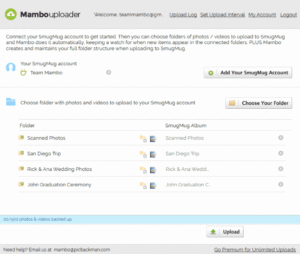-
Table of Contents
- The Impact of Elon Musk’s Twitter Presence on his Public Image
- Analyzing Elon Musk’s Controversial Tweets and their Consequences
- Elon Musk’s Approach to Social Media and its Effect on his Business Ventures
- The Role of Twitter in Elon Musk’s Communication Strategy
- Exploring the Controversial Actions of Elon Musk on Social Media Platforms
- Q&A
Elon Musk booed for deleting Twitter in Valorant tournament; a reminder of his controversial tweets.
Elon Musk, the renowned entrepreneur and CEO of Tesla and SpaceX, recently faced backlash during a Valorant tournament for deleting his Twitter account. This incident brought attention to some of his most controversial tweets, which have often sparked debates and controversies in the past.
The Impact of Elon Musk’s Twitter Presence on his Public Image
Elon Musk, the enigmatic CEO of Tesla and SpaceX, is no stranger to controversy. From his bold predictions about the future of technology to his unfiltered and often controversial tweets, Musk has become a polarizing figure in the public eye. Recently, Musk found himself in hot water once again when he deleted his Twitter account during a Valorant tournament, leading to boos from the crowd. This incident serves as a reminder of the impact that Musk’s Twitter presence has had on his public image.
Musk’s Twitter account has been a source of both admiration and criticism. On one hand, his tweets have allowed him to connect directly with his followers and share updates on his various ventures. This direct line of communication has given Musk a level of transparency that is rare among CEOs. However, it has also given him a platform to express his unfiltered thoughts and opinions, which has often landed him in trouble.
One of Musk’s most controversial tweets came in 2018 when he referred to a diver involved in the Thai cave rescue as a “pedo guy.” This tweet sparked outrage and led to a defamation lawsuit against Musk. While he later apologized for the tweet, the damage had already been done. This incident, along with others like it, has raised questions about Musk’s judgment and professionalism.
Despite the controversies, Musk’s Twitter presence has undoubtedly had a significant impact on his public image. His tweets have helped to shape the narrative around his companies and his vision for the future. Whether he is announcing a new product or sharing his thoughts on a current event, Musk’s tweets often make headlines and generate buzz. This level of attention has helped to elevate his status as a visionary and has made him a household name.
However, the downside of this attention is that it can also amplify the negative aspects of Musk’s personality. His tendency to make impulsive and sometimes offensive remarks has led to accusations of arrogance and a lack of empathy. Critics argue that his Twitter presence undermines his credibility and distracts from the important work that he is doing.
The incident at the Valorant tournament, where Musk deleted his Twitter account, highlights the unpredictable nature of his social media presence. While some may see this as a harmless prank, others view it as a sign of immaturity and a lack of respect for the event and its participants. This incident serves as a reminder that Musk’s actions on Twitter can have real-world consequences and can impact how he is perceived by the public.
In conclusion, Elon Musk’s Twitter presence has had a significant impact on his public image. While it has allowed him to connect directly with his followers and share updates on his ventures, it has also exposed him to criticism and controversy. Musk’s unfiltered and often controversial tweets have raised questions about his judgment and professionalism. However, his Twitter presence has also helped to shape the narrative around his companies and his vision for the future. The incident at the Valorant tournament serves as a reminder of the unpredictable nature of Musk’s social media presence and the potential impact it can have on his public image. As Musk continues to navigate the world of social media, it remains to be seen how his Twitter presence will continue to shape his public image.
Analyzing Elon Musk’s Controversial Tweets and their Consequences
Elon Musk, the enigmatic CEO of Tesla and SpaceX, is no stranger to controversy. With his bold and often unfiltered tweets, Musk has managed to both captivate and infuriate the public. From his musings on artificial intelligence to his unconventional business strategies, Musk’s tweets have become a topic of discussion and debate. However, it was his recent decision to delete his Twitter account during a Valorant tournament that sparked a wave of boos and criticism.
Musk’s decision to delete his Twitter account during the Valorant tournament was met with mixed reactions. While some saw it as a strategic move to focus on the game, others viewed it as a sign of disrespect towards the gaming community. Regardless of the reasons behind his decision, it once again brought attention to Musk’s controversial tweets and the consequences they have had.
One of Musk’s most infamous tweets was his claim that he had secured funding to take Tesla private at $420 per share. This tweet sent shockwaves through the financial world, leading to an investigation by the Securities and Exchange Commission (SEC). Musk eventually settled with the SEC, agreeing to step down as Tesla’s chairman and pay a hefty fine. This incident highlighted the power and potential consequences of Musk’s tweets, as they can have a significant impact on the stock market and investor confidence.
Another controversial tweet from Musk involved his comments about the COVID-19 pandemic. In a series of tweets, Musk downplayed the severity of the virus and expressed his frustration with lockdown measures. These tweets drew criticism from health experts and the public, who argued that Musk was spreading misinformation and undermining efforts to control the spread of the virus. Musk’s tweets also led to a backlash against Tesla, with some customers and employees expressing concerns about the company’s handling of the pandemic.
Musk’s tweets have not only caused controversy in the business and health sectors but also in the social and political realms. In 2018, Musk tweeted that he was considering taking Tesla private and that funding was secured. This tweet led to a lawsuit from a British cave diver involved in the rescue of a soccer team trapped in a cave in Thailand. The diver claimed that Musk’s tweet falsely accused him of being a pedophile. Musk eventually apologized and settled the lawsuit, but the incident highlighted the potential legal and reputational risks of his tweets.
Despite the controversies surrounding his tweets, Musk has also used Twitter as a platform to make significant announcements and engage with his followers. From unveiling new Tesla products to sharing updates on SpaceX missions, Musk has leveraged the power of social media to build excitement and generate buzz. His tweets have become a form of marketing and public relations, allowing him to directly communicate with his audience and shape the narrative around his companies.
In conclusion, Elon Musk’s controversial tweets have had far-reaching consequences. From legal battles to stock market fluctuations, his unfiltered musings have had a significant impact on various industries and sectors. While some view his tweets as refreshing and authentic, others see them as reckless and irresponsible. Regardless of one’s opinion, it is clear that Musk’s tweets have become an integral part of his public persona and have the power to shape public opinion and influence decision-making. As Musk continues to push boundaries and challenge conventions, it remains to be seen how his tweets will continue to shape the world around us.
Elon Musk’s Approach to Social Media and its Effect on his Business Ventures
Elon Musk, the enigmatic CEO of Tesla and SpaceX, is no stranger to controversy. From his bold predictions about the future of technology to his unfiltered and often controversial tweets, Musk has become a lightning rod for both praise and criticism. Recently, Musk found himself in hot water once again when he was booed for deleting his Twitter account during a Valorant tournament. This incident, while seemingly trivial, highlights Musk’s unique approach to social media and its effect on his business ventures.
Musk’s use of social media has been a double-edged sword. On one hand, his tweets have helped him build a massive following and generate buzz around his companies. His witty and often irreverent posts have endeared him to many, making him a cult-like figure in the tech world. However, on the other hand, his tweets have also landed him in trouble and caused significant damage to his reputation.
One of Musk’s most controversial tweets came in 2018 when he tweeted that he had secured funding to take Tesla private at $420 per share. This tweet sent shockwaves through the financial markets and led to an investigation by the Securities and Exchange Commission (SEC). Musk eventually settled with the SEC, agreeing to step down as chairman of Tesla and pay a hefty fine. This incident served as a stark reminder of the power and potential consequences of Musk’s social media presence.
Despite the controversies, Musk has shown no signs of slowing down on social media. In fact, he seems to relish in the attention and controversy his tweets generate. He has been known to engage in Twitter battles with critics and even use the platform to make major announcements about his companies. This unfiltered and often impulsive approach to social media has both its benefits and drawbacks.
On one hand, Musk’s social media presence has helped him build a loyal and passionate following. His tweets have become a form of entertainment for many, and his ability to connect with his audience on a personal level has only strengthened his brand. This has translated into increased interest and support for his companies, with Tesla’s stock price soaring and SpaceX becoming a major player in the aerospace industry.
On the other hand, Musk’s tweets have also caused significant headaches for his companies. His off-the-cuff remarks and controversial statements have led to legal battles, damaged relationships with business partners, and even affected stock prices. This raises the question of whether Musk’s social media presence is ultimately helping or hurting his business ventures.
While it is clear that Musk’s social media presence has had both positive and negative effects on his companies, it is also important to consider the broader implications. Musk’s approach to social media is a reflection of his personality and leadership style. He is known for his unconventional thinking and willingness to take risks, and this is evident in his social media presence.
In conclusion, Elon Musk’s approach to social media is a double-edged sword. While his unfiltered and often controversial tweets have helped him build a massive following and generate buzz around his companies, they have also caused significant damage to his reputation and led to legal battles. Whether his social media presence ultimately helps or hurts his business ventures remains to be seen, but one thing is for certain – Elon Musk is not afraid to speak his mind, even if it means facing the consequences.
The Role of Twitter in Elon Musk’s Communication Strategy
Elon Musk, the enigmatic CEO of Tesla and SpaceX, is no stranger to controversy. From his bold predictions about the future of technology to his unfiltered and often controversial tweets, Musk has become a polarizing figure in the business world. Recently, Musk found himself in hot water once again when he was booed for deleting his Twitter account during a Valorant tournament. This incident raises an interesting question: what role does Twitter play in Musk’s communication strategy?
Twitter has become a powerful tool for public figures to communicate directly with their audience. With its real-time updates and wide reach, the social media platform allows individuals like Musk to share their thoughts and ideas with millions of people around the world. For someone like Musk, who is known for his unconventional and sometimes controversial views, Twitter provides a platform to express himself freely and without the filter of traditional media.
Musk’s Twitter account has been the source of both admiration and criticism. On one hand, his tweets have garnered a large following and have helped to build his personal brand. His witty remarks and bold statements have made headlines and have even influenced the stock market. On the other hand, Musk’s tweets have also landed him in trouble. From his infamous “funding secured” tweet that led to a lawsuit from the Securities and Exchange Commission to his controversial comments about the COVID-19 pandemic, Musk’s tweets have often sparked outrage and backlash.
Despite the controversies, Musk has continued to use Twitter as a means of communication. He has used the platform to make important announcements about his companies, share updates on projects, and even engage in conversations with his followers. Musk’s Twitter presence has become an integral part of his overall communication strategy, allowing him to connect directly with his audience and shape public perception of himself and his ventures.
However, the incident at the Valorant tournament raises questions about the potential downsides of relying too heavily on social media for communication. Musk’s decision to delete his Twitter account during the tournament was met with boos from the audience, highlighting the fact that his absence from the platform was noticed and even criticized. This incident serves as a reminder that while Twitter can be a powerful tool, it also comes with its own set of risks and challenges.
One of the main challenges of using Twitter as a communication tool is the lack of control over the message. Unlike traditional media outlets, where interviews and statements can be carefully crafted and edited, Twitter allows for instant and unfiltered communication. This can lead to impulsive and ill-advised tweets that can have serious consequences. Musk’s history of controversial tweets is a testament to this challenge.
Another challenge is the potential for misinterpretation. With the limited character count and the absence of tone and body language, tweets can easily be misunderstood or taken out of context. This can lead to misunderstandings and damage to one’s reputation. Musk’s tweets about the COVID-19 pandemic, for example, were widely criticized for spreading misinformation and downplaying the severity of the virus.
In conclusion, Twitter plays a significant role in Elon Musk’s communication strategy. It allows him to connect directly with his audience, share updates, and shape public perception. However, the incident at the Valorant tournament serves as a reminder of the risks and challenges that come with relying too heavily on social media for communication. Musk’s controversial tweets and the potential for misinterpretation highlight the need for caution and careful consideration when using Twitter as a communication tool. As Musk continues to navigate the world of social media, it will be interesting to see how he balances the benefits and pitfalls of this powerful platform.
Exploring the Controversial Actions of Elon Musk on Social Media Platforms
Elon Musk, the enigmatic CEO of Tesla and SpaceX, is no stranger to controversy. Known for his bold and often unconventional ideas, Musk has made headlines time and time again for his controversial actions on social media platforms. From his infamous tweets about taking Tesla private to his recent decision to delete his Twitter account during a Valorant tournament, Musk’s social media presence has been a constant source of fascination and debate.
One of Musk’s most controversial moments on Twitter came in 2018 when he tweeted about taking Tesla private at $420 per share, claiming that he had secured funding for the deal. This tweet sent shockwaves through the financial world, leading to an investigation by the Securities and Exchange Commission (SEC) and ultimately resulting in Musk stepping down as chairman of Tesla. The incident highlighted the power and influence that Musk wields on social media, as his tweets have the ability to move markets and impact the fortunes of companies.
In addition to his tweets about Tesla, Musk has also been known to make controversial statements about other topics. For example, in 2018, he called a British diver involved in the rescue of a Thai soccer team trapped in a cave a “pedo guy” on Twitter. This tweet sparked outrage and led to a defamation lawsuit against Musk, which he ultimately settled. The incident raised questions about the responsibility of public figures on social media and the potential consequences of their actions.
More recently, Musk made headlines again when he deleted his Twitter account during a Valorant tournament. The move was met with boos from the audience, who were disappointed that they wouldn’t be able to follow Musk’s tweets during the event. While some saw this as a lighthearted moment, others criticized Musk for his attention-seeking behavior and questioned his commitment to the tournament. This incident once again highlighted the unpredictable and sometimes controversial nature of Musk’s social media presence.
Despite the controversies surrounding Musk’s social media activity, it is important to remember that he has also used these platforms to make significant contributions. For example, Musk has been a vocal advocate for renewable energy and has used Twitter to promote the benefits of electric vehicles and solar power. He has also used social media to engage with his followers and share updates on the progress of his companies. While his tweets may sometimes be controversial, they also serve as a platform for Musk to share his ideas and connect with his audience.
In conclusion, Elon Musk’s actions on social media platforms have been the subject of much debate and controversy. From his tweets about taking Tesla private to his recent decision to delete his Twitter account during a Valorant tournament, Musk’s social media presence has been both fascinating and polarizing. While his tweets may sometimes be controversial, they also serve as a platform for him to share his ideas and engage with his audience. Love him or hate him, there is no denying the impact that Musk’s social media activity has had on the world.
Q&A
1. Why was Elon Musk booed for deleting Twitter in a Valorant tournament?
Elon Musk was booed for deleting Twitter during a Valorant tournament because he is known for his controversial tweets and many people were disappointed by his decision.
2. What were some of Elon Musk’s most controversial tweets?
Some of Elon Musk’s most controversial tweets include his comments about the COVID-19 pandemic, his tweets about Tesla’s stock price, and his tweets about various public figures and companies.
3. How did people react to Elon Musk deleting Twitter during the Valorant tournament?
People reacted to Elon Musk deleting Twitter during the Valorant tournament by booing him, expressing disappointment, and criticizing his decision.
4. Why is Elon Musk known for his controversial tweets?
Elon Musk is known for his controversial tweets because he often expresses his opinions and ideas without filter, which can sometimes lead to backlash and controversy.
5. Did Elon Musk’s decision to delete Twitter during the Valorant tournament affect his reputation?
The impact of Elon Musk’s decision to delete Twitter during the Valorant tournament on his reputation may vary among individuals. Some people may view it negatively, while others may not be affected or may even support his decision.Elon Musk faced criticism and was booed for deleting his Twitter account during a Valorant tournament. This incident reminded people of his history of controversial tweets.









